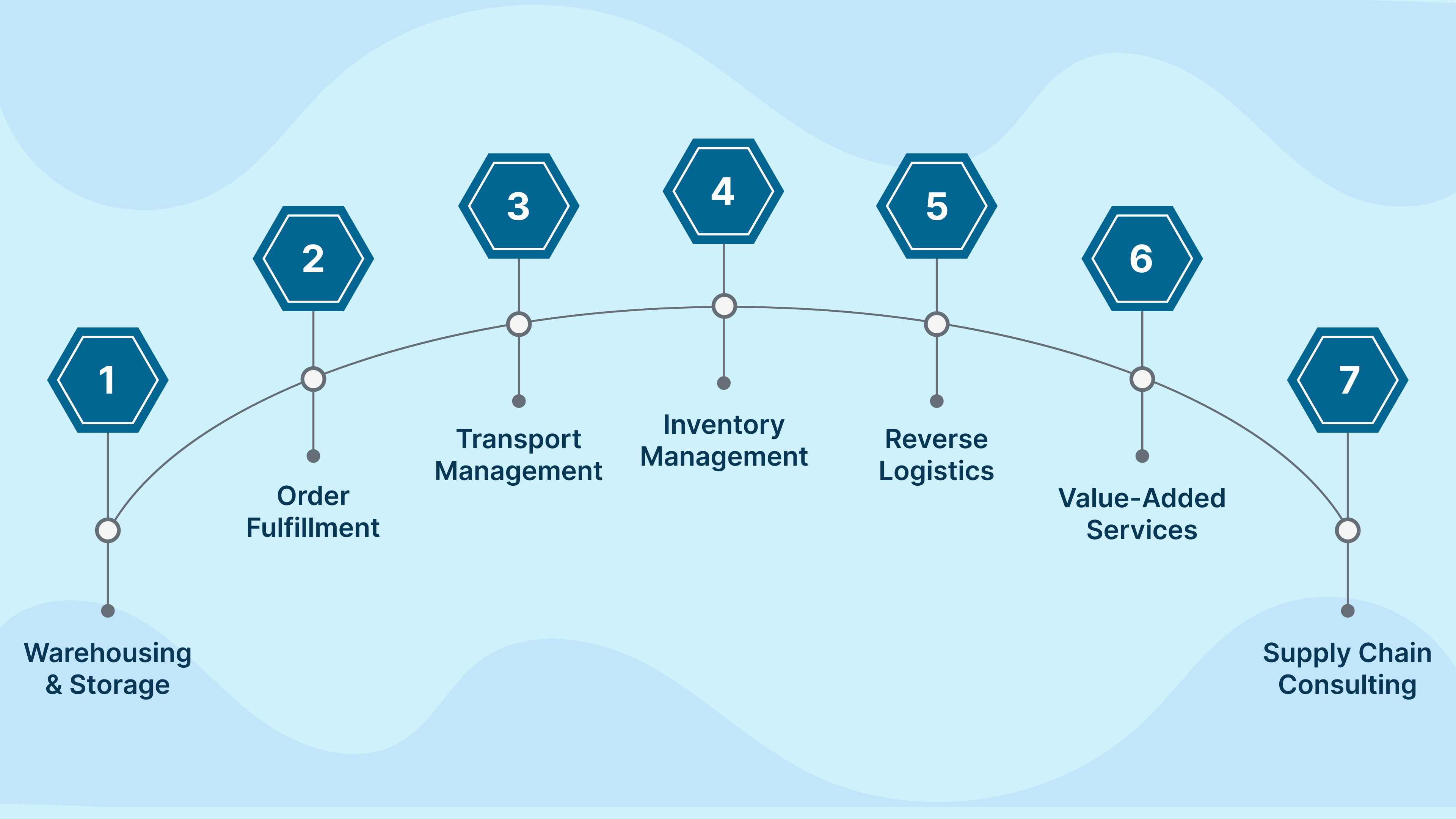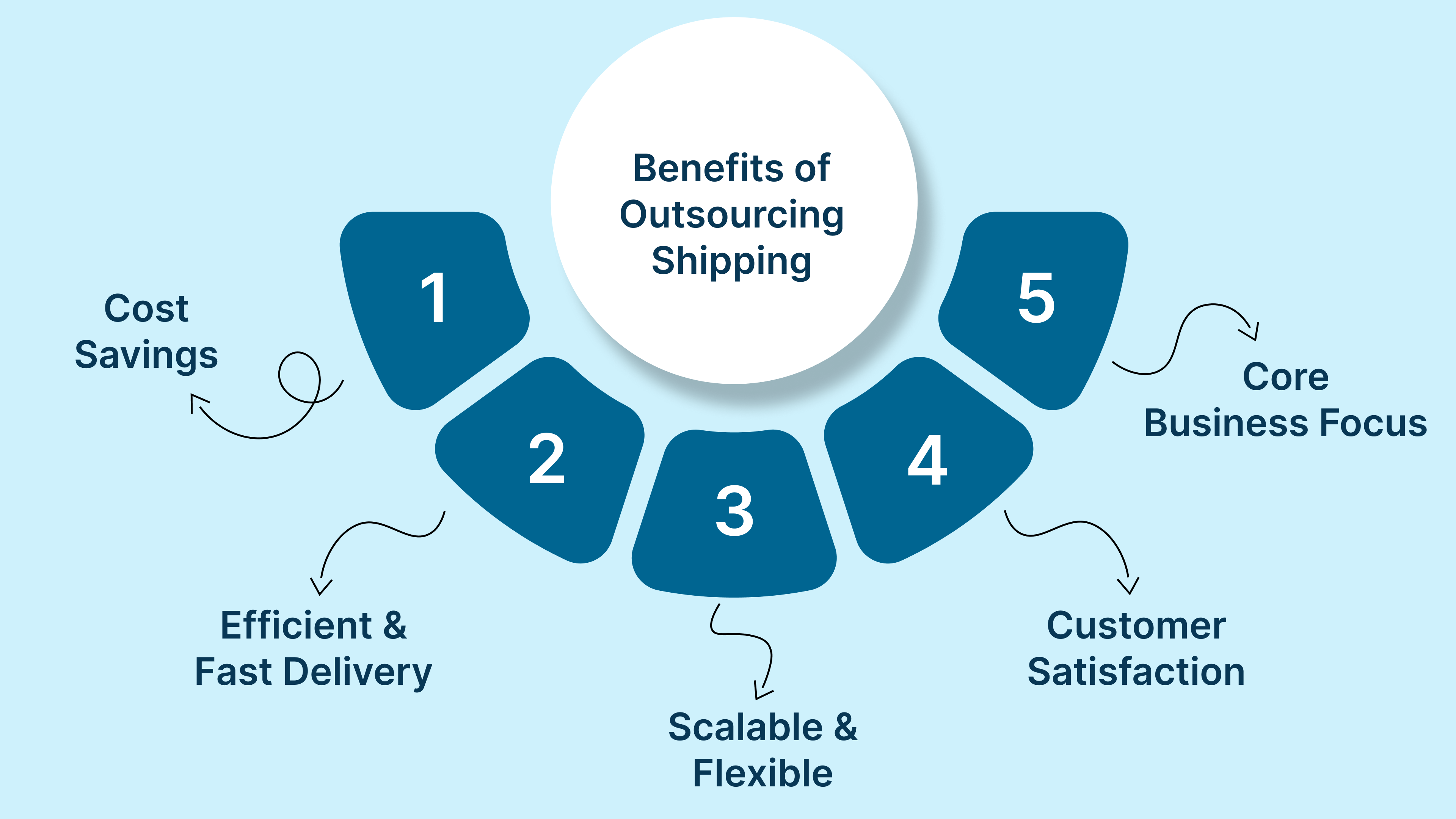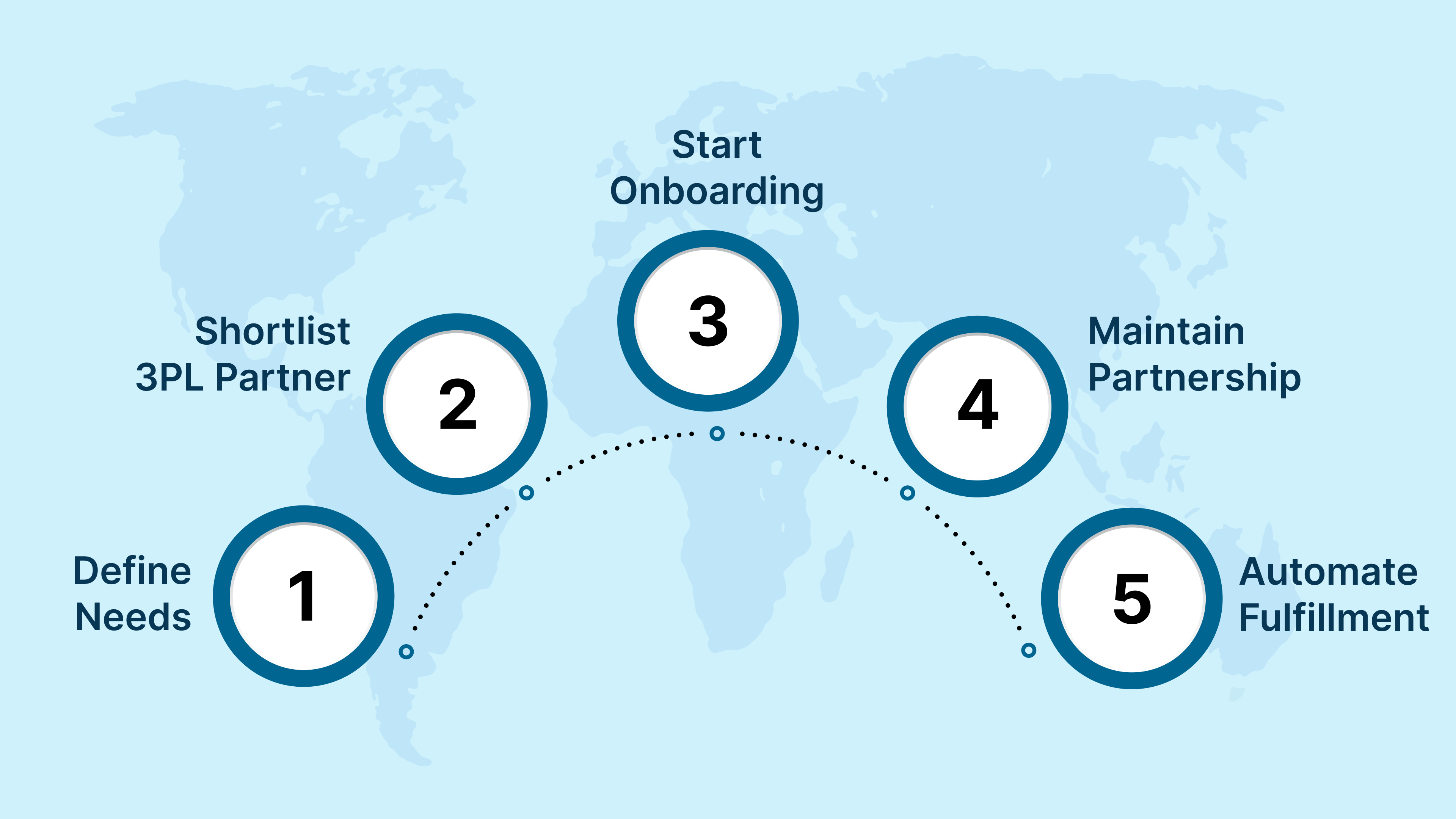What will it take for Philippine businesses to keep pace with the growing e-commerce market?
With 85 million Filipinos online and 16.5% annual growth projected through 2034, demand for faster, consistent delivery is rising. While Metro Manila dominates sales, regions like Visayas are catching up due to expanding connectivity and infrastructure upgrades. For online sellers, handling warehousing, packing, and delivery internally often leads to higher costs, slower fulfillment, and missed demand.
Small businesses and new entrants often struggle to meet customer expectations without overextending teams or overinvesting in logistics, while international sellers face challenges like local compliance, high shipping rates, and fragmented last-mile delivery networks.
Outsourcing fulfillment involves handing over logistics tasks, such as inventory storage, packing, and shipping, to a third-party specialist. Instead of managing operations internally, you rely on experienced providers to ensure quick, accurate delivery of customer orders. This model works well for e-commerce businesses in the Philippines that aim to grow without incurring heavy infrastructure investments.
You avoid significant expenses on warehouses, delivery vehicles, and staff while maintaining operational efficiency and customer satisfaction. Whether you’re a startup, growing retailer, or global brand entering the Philippine market, outsourcing helps you stay agile. The Philippine 3PL market is projected to grow at a CAGR of 1.73% through 2029 due to increasing e-commerce demand and infrastructure improvements.
Next, let’s take a closer look at the services these third-party fulfillment companies typically offer and how they can make your operations more efficient.
Also read: Understanding Order Fulfillment: Processes and Strategies

Outsourcing e-commerce fulfillment provides a range of services that simplify logistics, reduce internal burdens, enhance delivery performance, and support scaling in competitive markets.
Below are the key services you can expect from a typical order fulfillment provider:
Third-party providers offer secure warehousing options for storing and organizing inventory in strategically located distribution centers. They support various storage types, including temperature-controlled units and secure spaces for high-value or sensitive merchandise. With real-time Warehouse Management Systems (WMS), you can track inventory, control stock levels, and minimize manual errors.
Order fulfillment includes everything from order receipt to final delivery at the customer’s doorstep.
The process covers picking the right products, carefully packing them, and preparing them for shipment.
Fulfillment providers coordinate with carriers to ensure timely shipping and optimized delivery based on destination and urgency.
Transportation management includes planning routes, selecting carriers, and managing costs efficiently. Providers also handle shipment tracking, negotiate rates, and manage cross-border freight, contributing to the Philippines’ freight market growth from USD 15.26 billion in 2025 to USD 20.41 billion by 2030.
Outsourcing e-commerce fulfillment includes access to advanced tools for monitoring stock across multiple warehouse locations in real time. Inventory systems prevent overstocking or stockouts while providing insights for smarter restocking and demand forecasting. This level of control supports efficient decision-making and ensures product availability during peak shopping periods.
Fulfillment partners manage product returns end-to-end, from receiving and inspecting items to restocking or responsible disposal. A well-managed returns process boosts customer confidence and helps recover product value whenever possible. Efficient reverse logistics can also support sustainable practices by minimizing waste and improving resource use.
Many fulfillment companies offer enhancements that support brand presentation and operational customization.
These include kitting (assembling bundled products), branded packaging, labeling, and custom packing for a unique unboxing experience. Other services, like customs brokerage, simplify compliance for international sellers entering new e-commerce markets.
Some providers offer strategic support to refine your fulfillment and supply chain management processes.
This includes auditing logistics flows, suggesting automation tools, and implementing process improvements tailored to your business needs. With expert consulting, outsourcing e-commerce fulfillment becomes a long-term strategic advantage, not just an operational handoff.
Moving forward, let’s discuss the practical advantages of choosing a fulfillment partner and how it can directly benefit your business operations.

Outsourcing shipping and order fulfillment to a third-party logistics (3PL) provider presents numerous advantages. Here’s why partnering with a trusted 3PL can elevate your operations:
So, how exactly do fulfillment outsourcing providers differ from 3PL companies? Let’s break down these distinctions to help you choose the best fit for your needs.
Also Read: Understanding 3PL e-Commerce Fulfillment Processes 2025
While both fulfillment outsourcing providers and third-party logistics (3PL) companies support e-commerce operations, they are not always the same. Understanding the difference helps you choose a partner that aligns with your business model, growth stage, and operational needs.
Here’s a breakdown of how they compare across different functions:
| Aspect | Fulfillment Outsourcing Provider | 3PL (Third-Party Logistics) Company |
|---|---|---|
| Core Focus | E-commerce fulfillment (pick, pack, ship, returns) | End-to-end logistics (transportation, warehousing, freight forwarding) |
| Client Type | Primarily online retailers and e-commerce businesses | Wide range of industries (retail, manufacturing, import/export) |
| Service Scope | Focused on fulfillment and last-mile delivery | Broader services, including customs brokerage, freight,and warehousing |
| Technology Integration | Offers order and inventory dashboards specific to e-commerce workflows | Integrates complex supply chain and transport systems |
| Warehouse Operations | Shared fulfillment centers tailored for online order volume | May include dedicated or shared warehousing, depending on scale |
| Scalability | Ideal for rapid-growth e-commerce brands | Suited for complex, large-scale logistics networks |
| Returns Handling | Offers reverse logistics for e-commerce returns | May or may not include detailed returns management |
| Cost Model | Often pay-as-you-go or volume-based pricing | May involve fixed contracts or custom pricing based on service mix |
| Speed of Setup | Faster onboarding, pre-configured systems | Longer onboarding due to customized logistics planning |
| Market Entry Support | Ideal for entering local e-commerce markets like the Philippines | Best for regional or global market expansion strategies |
Choosing between a fulfillment outsourcing provider and a 3PL depends on your operational needs: outsourcing providers excel at fast, scalable e-commerce fulfillment, while full-service 3PLs offer broader logistics capabilities like international freight and custom warehousing.

Outsourcing e-commerce fulfillment isn’t just about handing over logistics; it’s about building a scalable, cost-effective supply chain. Whether you’re a startup in Manila or an international seller entering the Philippine market, follow these structured steps to get it right:
Before reaching out to providers, clarify what fulfillment challenges you’re solving and what success looks like.
Not all logistics providers suit e-commerce. Choose one aligned with your industry, scale, and customer locations.
This step lays the foundation for smooth day-to-day fulfillment. Accuracy and integration matter most here.
Successful outsourcing isn’t set-and-forget. It requires visibility, accountability, and two-way communication.
Let the system handle orders while you focus on growth. Your 3PL handles execution from click to delivery.
Also Read: Understanding Fulfillment Centers: Essential for E-commerce Success
Next, let’s review the situations where outsourcing fulfillment might not be the best fit for your business.
Outsourcing fulfillment can streamline operations and boost efficiency; however, managing fulfillment in-house may be better depending on your order volume, product type, and branding strategy. Here’s when you should reconsider outsourcing e-commerce fulfillment:
Let’s see how Inspire Solutions Asia will successfully outsource your fulfillment and set your business up for long-term success.
Proper outsourcing of e-commerce fulfillment helps your business stay lean, reduce logistics burdens, and scale efficiently, ensuring fast, accurate, and consistent delivery to customers.
At each stage of your growth journey, Inspire Solutions Asia equips you with what matters most. Our secure warehousing and real-time inventory systems help you maintain stock accuracy and minimize fulfillment delays. Through automated sourcing and importation, you can access quality products from trusted global suppliers without navigating customs hurdles alone. If cash flow is a concern, our flexible financing solutions help fund inventory and scale operations without heavy upfront costs. And when speed is critical, our Same-Day and Next-Day Delivery network ensures your customers receive their orders on time, every time, boosting satisfaction and loyalty.
Scale Smarter with Integrated Fulfillment Support
Want expert guidance that’s tailored to your operations, not just a sales pitch? Book your free consultation to streamline your e-commerce fulfillment with Inspire Solutions Asia today.